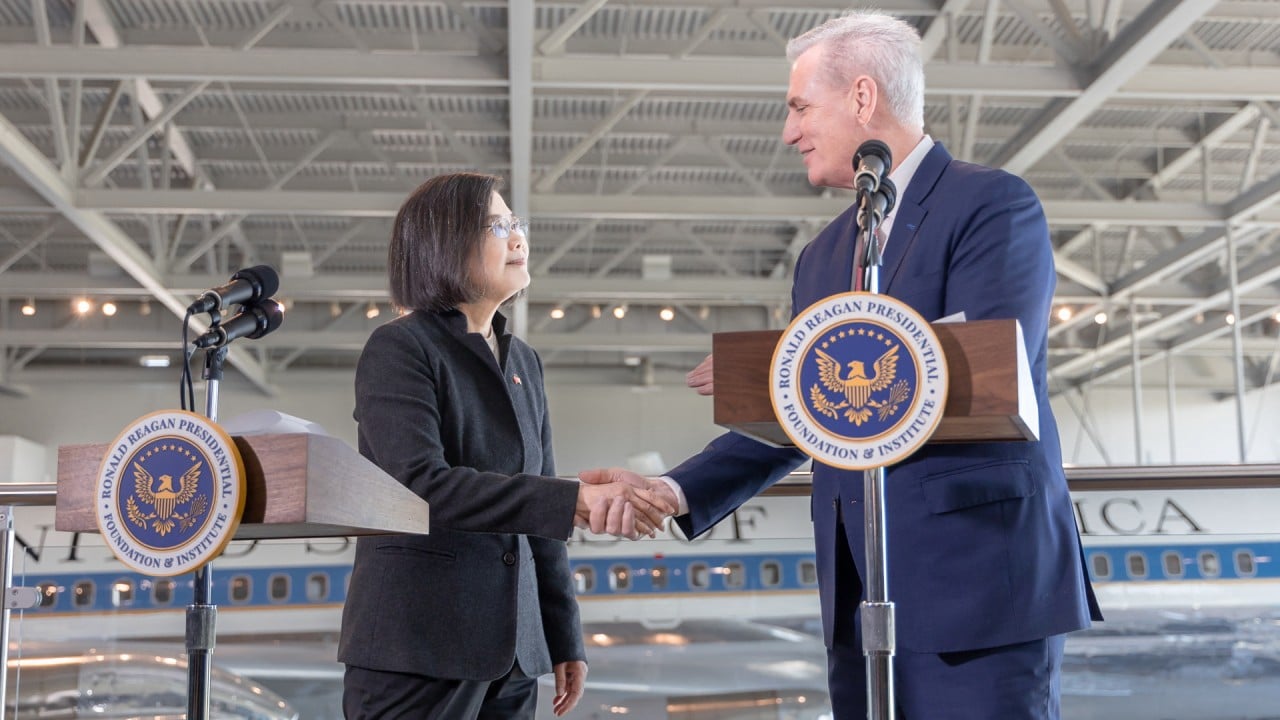
US congressman Patrick McHenry, opponent of China investment curbs, won’t run for re-election
- McHenry has resisted efforts to require companies to notify the government before making deals in China that involve technologies with military applications
- The Republican from North Carolina, who briefly served as acting US House speaker, will hold office until January 2025
US Representative Patrick McHenry, the top Republican on the House Financial Services Committee known for opposing controls on outbound investment to China, will not seek re-election, he announced on Tuesday.
McHenry’s term expires in January 2025.
The 48-year-old North Carolina Republican, who has served in Congress since 2005, stepped in as the House speaker for several weeks after a group of party hardliners pushed out Kevin McCarthy.
“While we appreciate the intentions and objectives of Section 1085, the result of this provision would be to strengthen rather than weaken the objectives of Xi Jinping and the Chinese Communist Party,” the letter said.
“To begin with, it is a misconception that US investors are fuelling China’s economic growth,” it said, citing a Rhodium Group report that says US venture capital in China has reached a 10-year low.
“Sec. 1085 would have the unintended consequence of limiting Americans’ control, influence and intelligence-gathering in Chinese technology companies.”
Experts urge caution as US plans to screen outbound investment into China
Instead, sanctions on defence-sector entities in China would be more effective, the letter writers argued.
“Since China is in no way dependent on capital from US investors, the only way to undermine its military companies is by cutting off revenues and technology, which is the advantage of a sanctions regime.”
The letter was co-signed by all subcommittee chairs in the House Financial Services Committee.
The House is set to drop the provision in question from the final version of the defence spending bill because of pressure from McHenry.
His tenure as chair of the Financial Services Committee will conclude at the end of the current Congress, as House Republican rules prevent members from serving for more than three consecutive terms as the lead party member on a committee.
Clete Willems, a partner at law firm Akin Gump, said McHenry stood out among other members working on China issues because of his background in finance and economics.
“A lot of the members of the House in particular, they come from defence backgrounds, and they view China through a defence lens,” Willems said.
“If that’s your perspective, you can see why outbound investment [is a] no-brainer, but if you look at this more holistically in terms of the competition with China and the importance of economic growth to win that competition, you might look at it in a slightly different way.”
Willems, who served under president Donald Trump as deputy director of the National Economic Council, said McHenry’s departure would remove a particularly effective opponent of full decoupling from China, adding: “He’s someone who has built up a tremendous amount of institutional knowledge as well as credibility over the years.”


